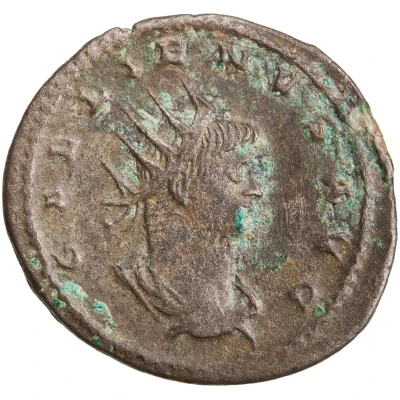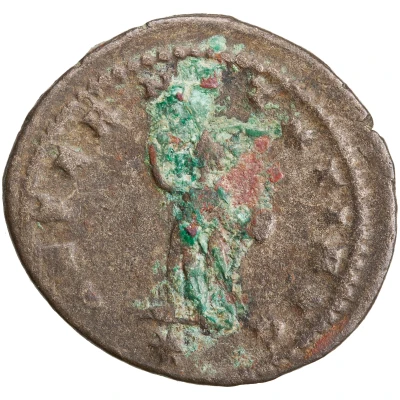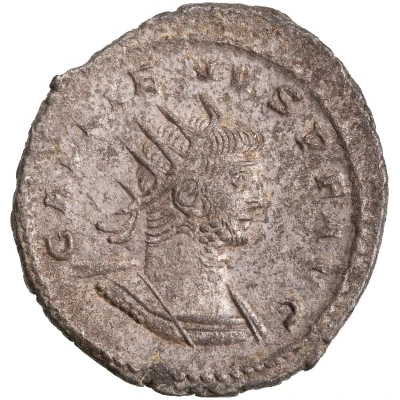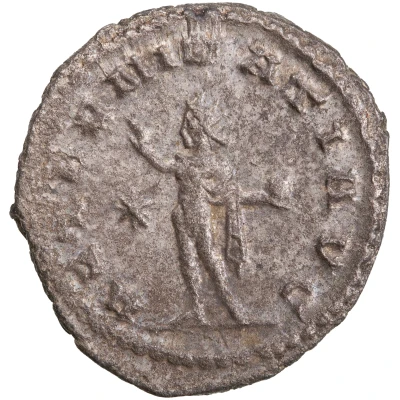


© American Numismatic Society (ANS)
Antoninianus - Gallienus AETERNITATI AVG; Sol
| Silver | 3.3 g | 21.5 mm |
| Issuer | Rome › Roman Empire (27 BC - 395 AD) |
|---|---|
| Emperor | Gallienus (Publius Licinius Egnatius Gallienus) (253-268) |
| Type | Standard circulation coin |
| Years | 260-268 |
| Value | Antoninianus (1) |
| Currency | Antoninianus, Reform of Caracalla (AD 215 – 301) |
| Composition | Silver |
| Weight | 3.3 g |
| Diameter | 21.5 mm |
| Shape | Round (irregular) |
| Technique | Hammered |
| Demonetized | Yes |
| Updated | 2024-10-05 |
| Numista | N#289440 |
|---|---|
| Rarity index | 97% |
Reverse
Sol, radiate, nude except for cloak draped over shoulders, standing left, raising right hand and holding globe in left hand. Officina mark in left field.
Script: Latin
Lettering:
AETERNITATI AVG
*
Translation:
Aeternitati Augusti.
[Dedicated to] the immortal emperor (Augustus).
Comment
Mass varies: 2.78–4.15 g;Diameter varies: 21–22 mm;
Example of this type:
American Numismatic Society (ANS)
Source:
Online Coins of the Roman Empire (OCRE)
Interesting fact
The Antoninianus coin was issued during the reign of Gallienus, who was the Roman Emperor from 260 to 268 AD. During his reign, the Roman Empire was facing numerous challenges, including invasions by barbarian tribes and internal conflicts. Despite these challenges, Gallienus was able to maintain the empire's stability and issue coins like the Antoninianus, which was a standard circulation coin at the time. The coin's design features the image of Sol, the Roman god of the sun, on the obverse (front side), and the legend "AETERNITATI AVG" on the reverse (back side), which translates to "Eternity of the Emperor." The coin's silver content and weight of 3.3 grams were also standard for coins of its denomination during that time period. Overall, the Antoninianus coin is an interesting piece of history that provides insight into the Roman Empire's economy, religion, and political landscape during the 3rd century AD.

